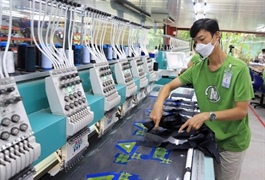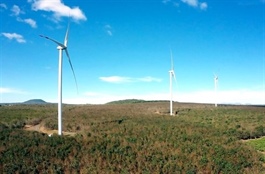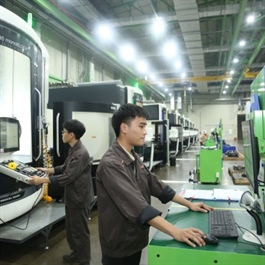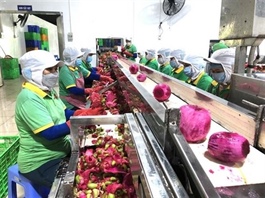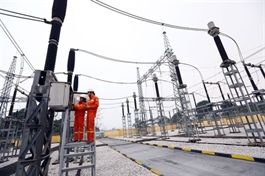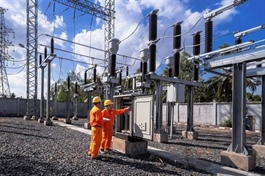EV production keeps demand and price for copper high
EV production keeps demand and price for copper high
As countries around the world set their sights on the development of electric vehicles (EV) as a key component of the net-zero carbon emission vision 2050, copper, an important input material in making EVs will likely be in short supply and expensive, said industry insiders and experts.
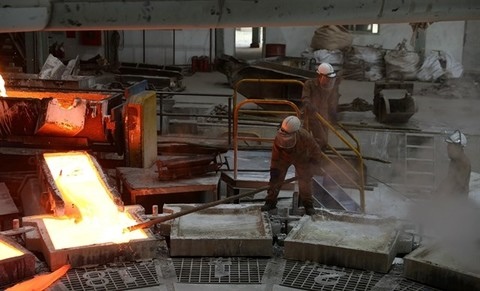
Workers during a shift at the Lào Cai Copper Refinery in the northern province of Lào Cai. — VNA/VNS Photo |
As production grows, demand for the red metal will continue to rise in the future while limited supply is forecast to fall short of demand in the coming years.
Cobre Panama, one of the world's largest copper mine supplying the global market with around 400,000 tonnes of copper annually closed down last year as major copper mining businesses including Anglo America and Vale downgraded their own production forecast for this year and the next. Codelco, another large international mining corporation, also reported historic-low production, the lowest in the last quarter of a century, due to scarcity of supply and interrupted mining operations.
To make matters worse, global supply took another hit this year as Chinese suppliers, who supply more than half of the world's copper, cut production driving prices up earlier in March this year. The global market has been warned it may face a shortage of 428,000 tonnes of refined copper this year, significantly worse than the supply shortfall of 130,000 tonnes in 2023.
According to data from the Mercantile Exchange of Vietnam (MXV), since the beginning of March prices of copper posted on COMEX, a division of the CME Group and a leading platform for trading futures contracts on precious and base metals such as gold, silver, and copper, has increased by 22 per cent and hovering around the US$10,000 per tonne mark. The high prices reflect high demand for the red metal as more economies are making the switch to greener energy.
A study by S&P Global has linked the net-zero vision to increased demand for copper to 50 million tonnes by 2035 or double the current demand, as sustainable energy infrastructures require a vast amount of copper.
For example, an EV requires five times the amount of copper its internal combustion engine counterpart does. In addition, solar and off-shore wind energy plants require two to five times the amount of copper needed by energy plants using fossil fuels.
As countries ramp up production and stockpiling of solar and wind energy equipment, supply has far exceeded demand for the time being, a situation that can only be resolved in 2028.
The study suggested EV production to be the main driving force behind the global green energy transformation, accounting for as much as 55 per cent of the market growth and ensuring high demand for copper in the next decades.
Industry insiders have long called for Việt Nam to take a more active role in the global EV supply chain, along with faster development of the country's charging infrastructure and battery technology.
They said most domestic businesses are only specialised in the assembling process. In order to increase its value chain and catch the new trend, the country must start investing in the production of battery, as well as copper refinery.
Despite having several refineries with a capacity of up to 10,000 tonnes per year, the Southeast Asian economy still heavily relies on imported copper for its huge appetite for the red metal. Investments to improve its domestic supply has been made a key priority by the industry, especially with demand and price looking to be on the rise in the coming decades.







